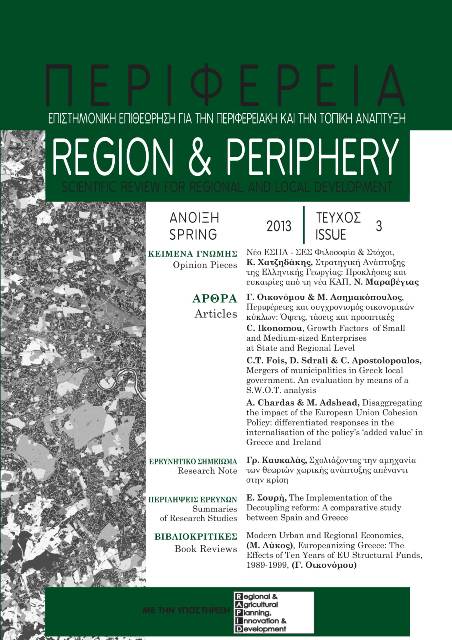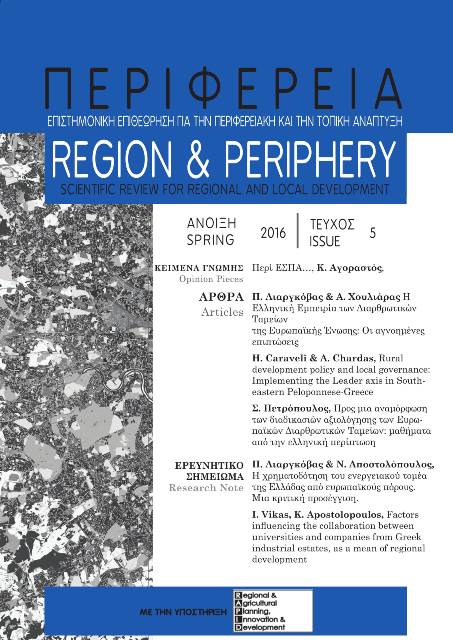Disaggregating the impact of the European Union Cohesion Policy: Differentiated responses in the internalisation of the policy’s ‘added value’ in Greece and Ireland

Abstract
This paper explores the divergent ‘added value’ that the implementation of the European Union’s (EU) Cohesion Policy (CP) had in two of the original cohesion countries, Greece and Ireland. The implementation of the CP entails the transposition of the added value that arrives at the domestic level of the recipient countries and intends to promote changes in the administrative and institutional structures. The paper identifi es fi ve areas in which the added value has infl uenced Greece and Ireland, cohesion, political, policy, operational and policy learning. We argue that Greece has faced signifi cant diffi culties in internalising certain components of the CP added value because of a series of domestic administrative and institutional arrangements that mediated this relationship. In the case of Ireland there have been better patterns of adjustment to the components of the CP added value because the previously established institutional and administrative arrangements were reformed by the domestic Irish governments.
Article Details
- How to Cite
-
Chardas, A., & Adshead, M. (2013). Disaggregating the impact of the European Union Cohesion Policy: Differentiated responses in the internalisation of the policy’s ‘added value’ in Greece and Ireland. Perifereia | Regional Integration: Politics, Economics, Governance, 3(3), 99–120. https://doi.org/10.12681/rp.18901
- Section
- Research Articles

This work is licensed under a Creative Commons Attribution-NonCommercial 4.0 International License.
Authors who publish with this journal agree to the following terms:
· Authors retain copyright and grant the journal right of first publication with the work simultaneously licensed under a Creative Commons Attribution Non-Commercial License that allows others to share the work with an acknowledgement of the work's authorship and initial publication in this journal.
· Authors are able to enter into separate, additional contractual arrangements for the non-exclusive distribution of the journal's published version of the work (e.g. post it to an institutional repository or publish it in a book), with an acknowledgement of its initial publication in this journal.
· Authors are permitted and encouraged to post their work online (preferably in institutional repositories or on their website) prior to and during the submission process, as it can lead to productive exchanges, as well as earlier and greater citation of published work.




